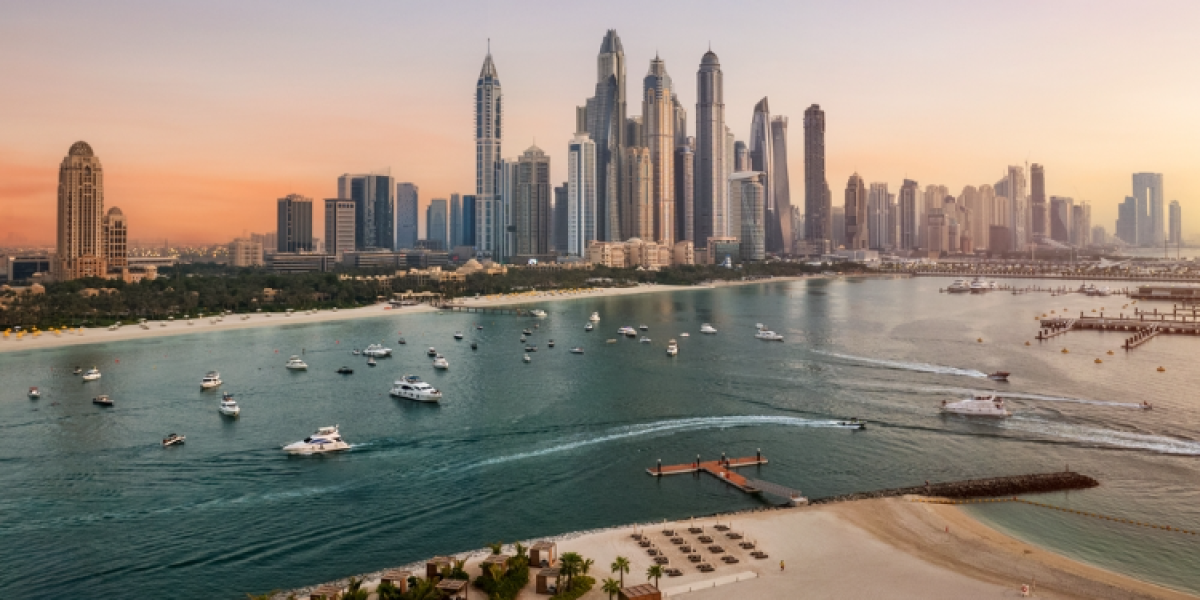
According to Mercer's ranking, Dubai is the 15th most expensive city globally, having climbed three spots since 2023. This ascent suggests a strong trend toward even higher costs. Expatriates are recalculating their budgets and tightening their belts. Despite Dubai's allure for foreign talents, the surging cost of living, fueled by continuously rising rents, might deter many from relocating to pursue their dreams. So who can afford to live in Dubai in 2024?
Who can live in Dubai?
It's important to note that the name "Dubai" refers to both the emirate and its capital city, with the emphasis in this context on the city itself. Dubai outshines all other areas within the emirate. It serves as the premier showcase not only for the emirate of the same name but also for the entire United Arab Emirates (UAE). Only Abu Dhabi, the capital of the UAE, rivals Dubai in prominence. Meanwhile, Ras Al Khaimah, often presented as "the anti-Dubai," is gaining attention. Despite this, Dubai continues to captivate the spotlight as the city of limitless possibilities for many expatriates—if they can manage the cost of living.
Dubai: A new hotspot for wealthy expats
Dubai has effectively transformed into a global brand, attracting entrepreneurs, influencers, investors, doctors, and crypto-millionaires who flaunt their luxurious lifestyles. These individuals, earning upwards of $40,000 per month, epitomize the premier profile of expatriates affluent enough to thrive in Dubai. Luxury is their mantra; in Dubai, the luxury sector thrives without a hint of downturn. For instance, the hospitality industry boasts that over 70% of its establishments are luxurious, with a single night in a high-end hotel potentially costing more than $2,000.
However, the housing market most vividly illustrates this luxury. The temporary decrease in rent prices during the health crisis has given way to skyrocketing prices. In 2024, renting a one-bedroom apartment in the city center costs over $2,000 per month, compared to $1,300 in the suburbs. Although this is roughly half of what one might pay in downtown New York, the costs keep rising, and coupled with expenses for social security, transportation, and schooling, it significantly drives up the cost of living. In 2023, a single person's monthly expenses, excluding rent, were above $1,000 (more than $3,700 for a family of four). This year, these figures have increased to over $1,100 for a single person and more than $3,800 for a family.
Utra-rich expats can expect even higher costs. Renting a more modest villa starts at around $5,000 per month, although many opt for more opulent accommodations where rents can exceed $15,000 per month.
Foreign professionals vs wealth in Dubai
Not all immigrants in Dubai are millionaires; some are "merely" wealthy, earning between $5,000 and $10,000 per month. These individuals can afford house rentals of about $5,000 per month and are typically employed by affluent Emiratis. While they may not be part of the inner circle of the privileged, they still interact closely with great fortunes and benefit from their strategic positions. Other foreigners sustain their lives in Dubai through significant roles—they may be senior employees, freelancers, entrepreneurs, or those immigrating based on their "exceptional skills."
Since 2020, the UAE has expanded the eligibility for its Golden Visa to attract a broader array of expatriates, including renowned creators, artists, exceptional students, top athletes, and talents across various sectors, such as innovators, e-sports talents, and designers. To further enhance its appeal and position itself as a future hub for gaming and technology, Dubai recently introduced the Dubai Gaming Visa, aiming for prominence in the gaming and tech world by 2033.
However, the entry requirement remains high for "non-exceptional" expats or those who cannot afford the investment required for a Golden Visa (at least $544,000). While this profile is more attainable than that of the ultra-rich, it is still a far cry from the everyday reality of many expatriates in Dubai.
Is Dubai becoming inaccessible to 'common' expats?
The wealthiest expatriates acknowledge that Dubai is becoming as exclusive as Monaco, with opinions divided on this gentrification that has enveloped the city. While some applaud the transformation, others lament the erosion of Dubai's cultural richness, now overshadowed by the gloss typical of other global megacities. Many foreigners share these sentiments, driven by personal impacts rather than abstract views. They express profound disappointment upon realizing that even substantial incomes are inadequate for sustaining a life in Dubai. Some expats had initially benefited from the Covid-induced price drops to secure residences in neighborhoods that were once beyond their means. Now, they attribute the escalating property prices to the influx of the super-rich.
The situation has worsened since then, with even the neighborhoods far from the city center becoming unaffordable. Rents have soared by nearly 30% from 2022 to 2023, with some areas experiencing increases of over 80% from 2020 to 2024. The cost of schooling has surged as well, with tuition at international schools now exceeding $10,000 annually. Other living costs, including food, clothing, and leisure activities, have also risen, transforming the once-golden Dubai life into a daily struggle for survival.
As a result, foreigners displaced from Dubai's opulent lifestyle are migrating to more affordable cities such as Ras Al Khaimah, Sharjah, and Ajman. However, there is a growing concern that these emerging cities might soon replicate Dubai's costly living conditions.



















